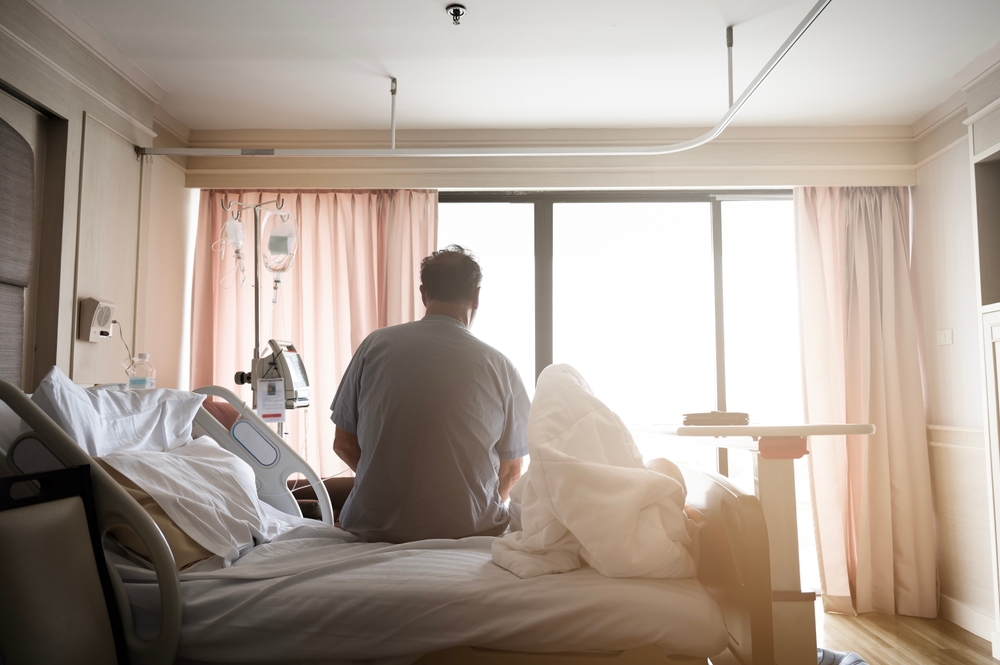NHS failing in mental health support for kidney cancer patients

A new report from Kidney Cancer UK reveals a failure in providing vital mental health support for those diagnosed with kidney cancer in the UK.
A new report combining ten years of data from the Kidney Cancer UK Annual Patient Survey has highlighted ongoing failures in providing vital mental health support to those diagnosed with kidney cancer – currently the 7th most common cancer in UK adults. The findings show that many patients are being let down in some of the most basic areas, impacting their ability to navigate their kidney cancer diagnosis and treatment journey with resilience and hope.
However, the charity believes support services can be improved at minimal cost through greater collaboration with charities that have experience in counselling and supporting kidney cancer patients.
The report, titled ‘Navigating the impact of kidney cancer: A decade insight into patient care and mental health’, is asking for simple changes such as:
- Providing patients with the contact details of their CNS (clinical nurse specialist) for direct support.
- Signposting to reliable information on treatments and surgery options
- Advising patients on how to access counselling to help with the shock of a cancer diagnosis.
Many patients are being failed in some of the most basic areas. For example, 37 per cent of those surveyed were unhappy with the way they were told they had kidney cancer, 30 per cent were not given the name of a CNS and an average of 29 per cent felt abandoned after surgery. Given the minimal cost needed to improve services, the charity is calling for the NHS to implement policies to ensure charities are a higher priority in the healthcare professionals support pathway.
With over 3,200 patients taking part in the Kidney Cancer UK Patient Surveys across the past decade, this is one of the most extensive independent kidney cancer surveys ever undertaken and has led the charity to call for the NHS to implement policies ensuring that charities are more of a priority in the healthcare professionals support pathway.
Malcolm Packer, CEO of Kidney Cancer UK, commented: “We need a nuanced approach to patient care, one that prioritises mental health – as well as physical health. The role of timely, relevant information to individuals with kidney cancer cannot be underestimated, and as a charity we consistently see those who have their information needs met after the shock of diagnosis or following treatment generally experience far better mental health outcomes.
“This comprehensive report combining a decade’s worth of data from kidney cancer patients provides valuable insights into how healthcare professionals and patient organisations can collaborate to meet the complex needs of kidney cancer patients, ensuring they receive the support necessary to navigate their diagnosis and treatment journey with resilience and hope.”
Dr Kate Fife, Consultant Clinical Oncologist at Addenbrooke’s Hospital Cambridge, added: “It is very disappointing to see that 37 per cent of patients are unhappy with the way they were given their kidney cancer diagnosis. Sensitive and clear patient communication is very much a priority for healthcare professionals, but despite training in communication, delivering news of a cancer diagnosis has not improved over the last 10 years of surveys.
“Couple this with the news that there is no change in the amount of information and support shared following diagnosis, the message to healthcare professionals everywhere is that we need to be more sensitive in our actions and work closer with Charities to help better support all cancer patients. There is clearly much room for improvement.”
The 11th annual Kidney Cancer UK Patient Survey is now open, and the Charity is calling for all kidney cancer patients, past or present, to complete the survey. To take the latest annual survey click here.
You can read the full report here. For support and information relating to kidney cancer visit www.kcuk.org.uk.